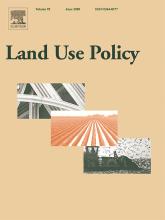Resource information
Conservation Agriculture (CA) is advocated as an agricultural innovation that will improve smallholder famer resilience to future climate change. Under the conditions presented by the El Niño event of 2015/16, the implementation of CA was examined in southern Malawi at household, district and national institutional levels. Agricultural system constraints experienced by farming households are identified, and in response the technologies, structures and agency associated with CA are evaluated. The most significant constraints were linked to household health, with associated labour and monetary impacts, in addition to the availability of external inputs of fertiliser and improved seed varieties. Our findings show that such constraints are not adequately addressed through current agricultural system support structures, with the institutions surrounding CA (in both Government extension services and NGO agricultural projects) focusing attention predominantly at field level practice, rather than on broader system constraints such as education and health support systems. Limited capacity within local institutions undermines long term efforts to implement new technologies such as CA. It is vitally important that the flexibility of farmers to adapt new technologies in a locally-appropriate manner is not closed down through national and institutional aims to build consensus around narrow technical definitions of a climate-smart technology such as CA. To enable farmers to fully utilise CA programmes, interventions must take a more holistic, cross-sectoral approach, understanding and adapting to address locally experienced constraints. Building capacity within households to adopt new agricultural practices is critical, and integrating healthcare support into agricultural policy is a vital step towards increasing smallholder resilience to future climate change.


